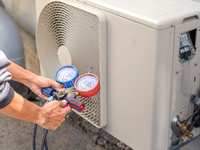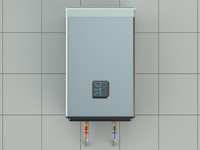Getting Your AC Unit Ready for Hot Texas Weather: Essential Tips for Homeowners

As temperatures rise in Spring and The Woodlands, Texas, ensuring your air conditioning (AC) unit is prepared to handle the heat becomes crucial for maintaining comfort and efficiency in your home. With proper maintenance and preparation, you can keep your AC running smoothly throughout the scorching summer months. In this article, we’ll discuss essential steps homeowners can take to get their AC unit ready for the hot Texas weather, along with the importance of regular AC inspections.
Clean or Replace Air Filters
- The air filters in your AC unit play a vital role in maintaining indoor air quality and ensuring optimal airflow. Over time, air filters can become clogged with dust, pollen, and other debris, restricting airflow and reducing the efficiency of your AC system. Therefore, it’s essential to clean or replace your air filters regularly, ideally every 1-3 months, especially before the start of the summer season.
Why: Clogged air filters can lead to reduced airflow, causing your AC unit to work harder and consume more energy. Additionally, dirty filters can compromise indoor air quality, leading to respiratory issues and discomfort for occupants.
Check and Clean Condenser Coils:
- The condenser coils of your AC unit are located in the outdoor unit and are responsible for releasing heat absorbed from indoors. Over time, condenser coils can accumulate dirt, debris, and even vegetation, hindering heat transfer and reducing efficiency.
Why: Dirty condenser coils can cause your AC unit to run longer and less efficiently, increasing energy consumption and the risk of system breakdowns. Cleaning the coils ensures proper heat transfer and optimal AC performance.
Inspect and Clean Evaporator Coils:
- The evaporator coils, located in the indoor unit, absorb heat from indoor air, allowing the refrigerant to cool and dehumidify the air. Like condenser coils, evaporator coils can also collect dirt and debris over time, impairing heat absorption and reducing cooling efficiency.
Why: Dirty evaporator coils can lead to decreased cooling capacity, uneven cooling, and higher energy bills. Cleaning the coils improves heat absorption and enhances overall AC performance.
Clear Debris Around Outdoor Unit:
- Ensure that the area around your outdoor AC unit is clear of debris, such as leaves, branches, and dirt. Maintain at least two feet of clearance around the unit to allow for proper airflow and ventilation.
Why: Blocked airflow can cause your AC unit to overheat and malfunction, leading to system failures and costly repairs. Keeping the area around the outdoor unit clean prevents airflow restrictions and ensures efficient operation.
Schedule Annual AC Inspection:
- Regular AC inspections by a qualified HVAC technician are essential for detecting potential issues early, ensuring optimal performance, and prolonging the lifespan of your AC unit. During an AC inspection, the technician will thoroughly assess various components of your AC system, including:
- Refrigerant levels: Insufficient or excessive refrigerant can lead to cooling inefficiencies and system malfunctions.
- Electrical components: Check for loose connections, faulty wiring, and worn-out components that may pose safety hazards or affect performance.
- Thermostat calibration: Ensure that the thermostat is calibrated correctly to maintain accurate temperature control and optimize energy efficiency.
- Ductwork inspection: Check for leaks, gaps, or blockages in the ductwork that may compromise airflow and reduce efficiency.
- Overall system performance: Evaluate the overall performance of your AC unit, including cooling capacity, airflow, and energy consumption.
Why: Annual AC inspections help identify and address potential issues before they escalate into major problems, saving you time, money, and inconvenience in the long run. Additionally, regular maintenance can improve energy efficiency, reduce utility costs, and extend the lifespan of your AC unit.
Preparing your AC unit for the hot Texas weather is essential for maintaining comfort, efficiency, and indoor air quality in your home. By following the tips outlined in this article and scheduling regular AC inspections, you can ensure that your AC system operates smoothly and reliably throughout the summer months. Don’t wait until the heatwave hits—take proactive steps to get your AC unit ready today!


















